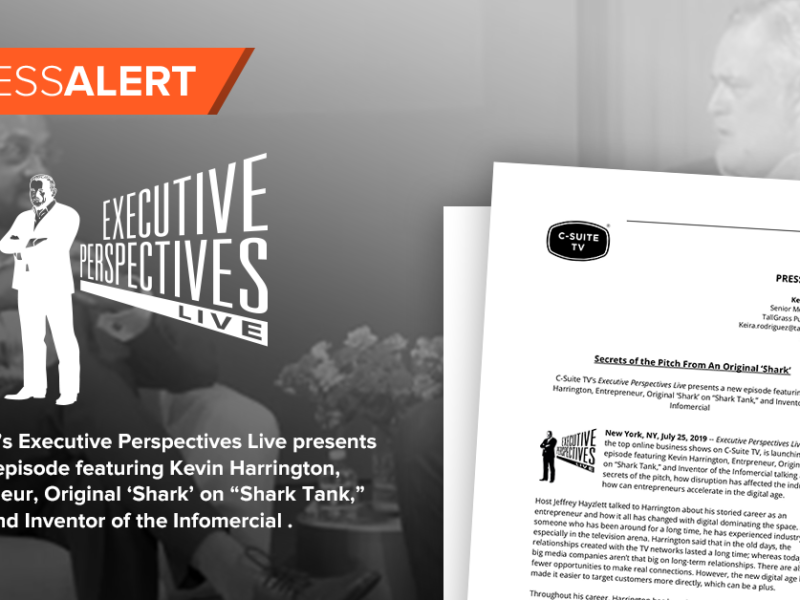
7 Ways to Spot Entrepreneurial DNA
7 Ways to Spot Entrepreneurial DNA https://csuiteold.c-suitenetwork.com/wp-content/uploads/2015/02/4422952742_30a436e31d_z.jpg 640 426 C-Suite Network https://csuiteold.c-suitenetwork.com/wp-content/uploads/2015/02/4422952742_30a436e31d_z.jpgby Michael Houlihan and Bonnie Harvey
Today there is a loud buzz about the entrepreneurial spirit, the entrepreneurial culture and even the entrepreneurial DNA. Corporations realize that in order to stay relevant, engage and empower their people, and create a positive and innovative culture, they must learn to spot entrepreneurial DNA in their job candidates.
We have a friend who runs the school of entrepreneurship at a major university. She says that, surprisingly, large corporations are now very interested her grads. Why? The answer is because entrepreneurial grads are more self-reliant and creative compared to grads who do not possess these business acuities. Most importantly, they have their eyes on the money, and they understand that the money comes from the customer. You have to remember that entrepreneurship students are not pursuing a degree in entrepreneurship to show it to an employer. In fact they often have no intention of taking a job, but they sincerely want to learn what they need to know to be successful in their own enterprise. They are, by their choice of study, self-reliant.
But if you want to hire someone with entrepreneurial DNA, what do you look for?
Here’s the short list:
- Performance Pay. Ask them if they want to get paid on attendance (salary), or are they willing to bet a portion their compensation on their own performance. Entrepreneurs don’t have any income unless they are constantly satisfying their customers. Seek out someone who knows they can add significant value to your bottom line. Look for self-confidence and self-reliance. Entrepreneurs are always looking for ways to increase income, profits and growth. They bet their income on themselves because they know their performance will mitigate the risks they are taking and abundantly reward them. So, make sure your company has some kind of profit sharing plan if you want to entice someone with entrepreneurial DNA to work for you.
- Body Language. Watch how they move. Ask them to get a file from the next office. Do they lumber out aimlessly, take too long, shuffle back slowly, flop down in their chair and lean on their elbows? Is their posture like a question mark? Or do they move with hustle, determination and purpose? When people sit erect and lean slightly forward, that indicates their engagement and interest. Entrepreneurs exude confidence and it shows in their posture and their body language. They have prepared themselves by learning about your company, and display confidence when they are interviewed and scrutinized by strangers like you. These “tells” are important to recognize because they are physical evidence of your candidate’s attitude and self-esteem.
- Mistakes. Ask them to describe the biggest mistake they ever made professionally, and more importantly, what they did about it. Listen for whether they fixed it fast and quickly went on with their project, or ultimately blamed others and were “victimized.” Note if they took responsibility. Successful entrepreneurs know that blame is disempowering, while doing what can be done to prevent reoccurrence is staying in control. Learn if they analyzed what happened and modified signs, labels, contracts, job descriptions, policies, or procedures to prevent it from happening again.
Entrepreneurs can’t afford to make the same mistake twice. They build their successes on the backs of their mistakes. - Resourcefulness. Ask them how they solved a professional problem when they lacked the time, support or funds they needed. Listen for how they used their imagination, asked for help, and thought outside the box. Listen for how they identified, re-purposed and used unlikely resources to achieve their goals in spite of the obstacles. Take note of how they rephrased the problem, saw the bigger picture and enlisted the help of strategic allies who would also benefit from the solution. See if their solution solved more than one problem. Those with entrepreneurial DNA will demonstrate their resourcefulness.
- Preparedness. Does the candidate expect you to ask all the questions? Do they just react to your initiatives? Do they wait for you to tell them about your company, its goals, successes and challenges? Or do they ask you questions? Candidates with the entrepreneurial DNA will treat you like a prospect for their services. They think of everyone as a customer for them, their service or their product. They know that the best sales pitch is, “I can help you sell your product,” and they can’t do that unless they thoroughly understand their prospect and how they can help. They have carefully researched your company in preparation for the interview. They know your products, your challenges, and your history. They come to the interview with a pen and notepad, and a list of questions.
- Teamwork. Contrary to popular opinion, entrepreneurs are not loners. Realistically, they know that they must build, depend on, and be an essential part of a team. This requires respect for how each player is key to the overall success of the company. They are keen on understanding all the jobs, procedures, outsourced services and suppliers that keep the customer loyal. Listen for candidates who show an interest in this process. Ask them how their last job fit in to their company’s big picture. Ask them how they worked with their teammates and improved communication both inside and outside their previous company.
- Organization. During the final interview, you do all the talking. Tell the candidate more about what the job entails, who they will be working with and why, how their job supports the customer experience, how your company is organized, and what the expectations are of their performance. Be sure to include how the funds get from the ultimate consumer to the company to cover their paycheck. Then ask them to write a one page summary of your company, the money trail from the end-user consumer, how they will be working with their teammates and why they qualify for the job. Then, tell them it’s due by 5PM tomorrow. This summary will tell you volumes about their comprehension, organization, communication, and ability to hit a deadline. These are all attributes of the entrepreneurial DNA.
There are other key “tells” that can help you spot the entrepreneurial DNA, such as assertiveness, dependability, sociability, humility, practicality, tenacity, empathy and humor. Asking the right questions will bring these attributes to light.
Also remember, it’s not enough to say you are looking for the entrepreneurial DNA in your candidates. You and your company have to walk the talk. You must build a culture of permission, enthusiasm, inclusiveness, recognition, and acknowledgement, and have a performance-based compensation plan to provide the environment the candidate with entrepreneurial DNA needs to flourish and remain with your company. If you want your employees to be more entrepreneurial, create the fertile ground in which they will bloom!
 Michael Houlihan and Bonnie Harvey are the founders of Barefoot Wine, the largest bottled wine brand in the world, and authors of the New York Times Bestselling Business book The Barefoot Spirit. From the start, with virtually no money and no wine industry experience, they employed innovative strategies to overcome obstacles, create new markets and foster key alliances. Michael and Bonnie now share their experience and entrepreneurial approach to business as consultants, authors, speakers, and workshop leaders. Michael and Bonnie launched at the C-Suite Network Conference their new companion book to The Barefoot Spirit entitled, The Entrepreneurial Culture, 23 Ways to Engage and Empower Your People. Learn more at barefootspirit.com, and find them on Facebook and Twitter @barefoot_spirit.
Michael Houlihan and Bonnie Harvey are the founders of Barefoot Wine, the largest bottled wine brand in the world, and authors of the New York Times Bestselling Business book The Barefoot Spirit. From the start, with virtually no money and no wine industry experience, they employed innovative strategies to overcome obstacles, create new markets and foster key alliances. Michael and Bonnie now share their experience and entrepreneurial approach to business as consultants, authors, speakers, and workshop leaders. Michael and Bonnie launched at the C-Suite Network Conference their new companion book to The Barefoot Spirit entitled, The Entrepreneurial Culture, 23 Ways to Engage and Empower Your People. Learn more at barefootspirit.com, and find them on Facebook and Twitter @barefoot_spirit.




